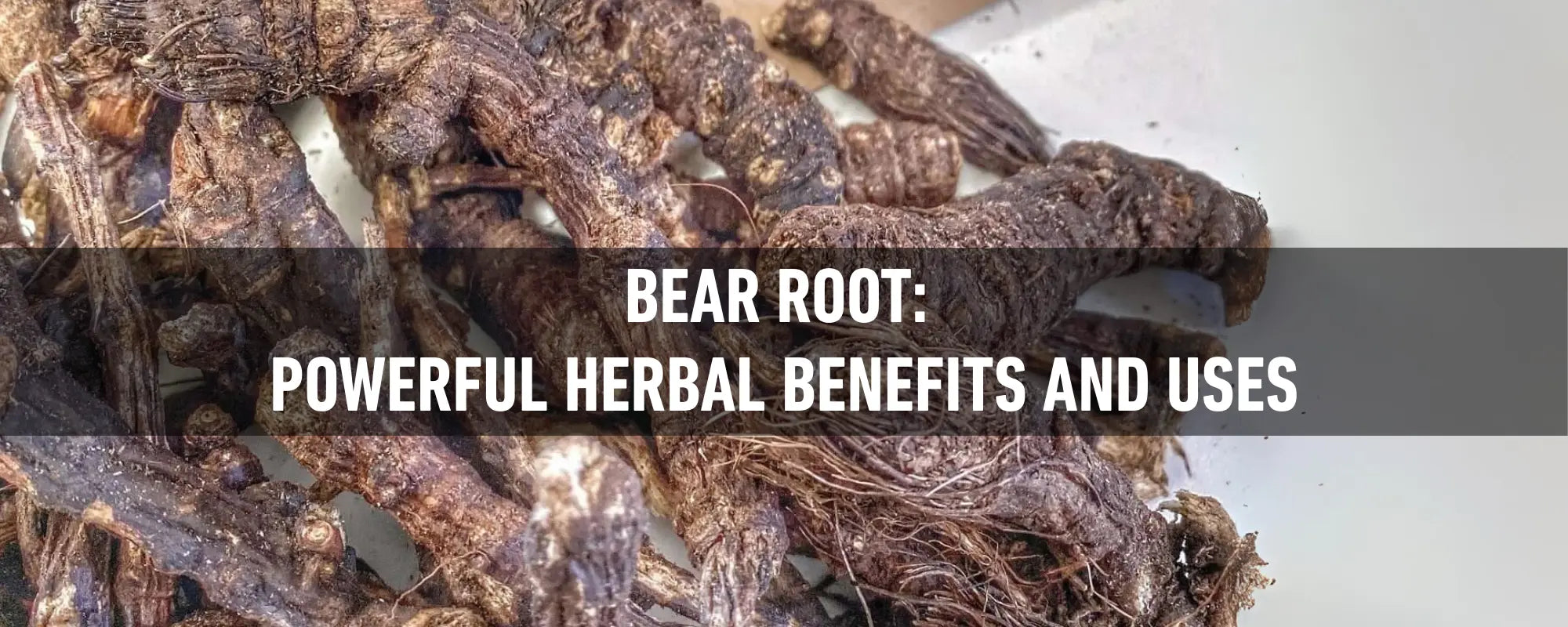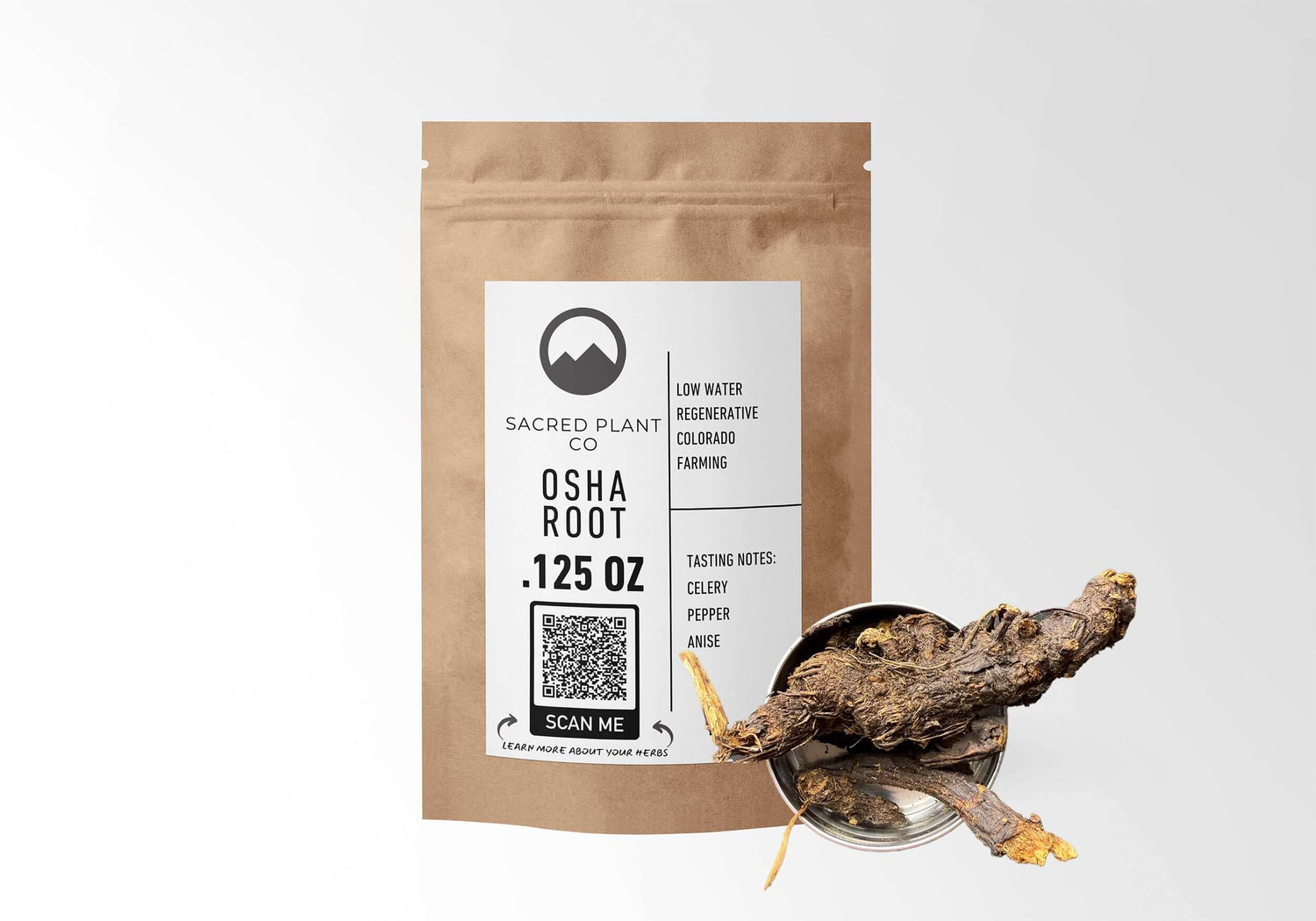Bear Root, also known as Osha Root, has long been used as a medicinal herb, particularly in Native American medicine. Known for its strong aroma and earthy flavor, Bear Root is a versatile herb renowned for its ability to support respiratory health, boost immunity, aid digestion, and reduce inflammation. In this article, we’ll explore the many benefits of Bear Root, its uses, and how to incorporate it into your wellness routine.
What is Bear Root?
Understanding the Origin of Bear Root
Bear Root, commonly referred to as Osha Root, is native to the Rocky Mountains and other high-altitude regions of North America. It has been used for centuries by indigenous cultures for its medicinal properties. Traditionally, it was chewed or brewed as a tea to treat various ailments, especially respiratory issues and infections.
Why is Bear Root Called Osha Root?
The terms Bear Root and Osha Root are often used interchangeably. The herb earned its nickname “Bear Root” because bears are known to dig up and chew the roots, particularly after hibernation, likely to boost their immunity. Regardless of the name, Bear Root has become popular in modern herbal medicine due to its numerous health benefits.
Top Health Benefits of Bear Root
1. Respiratory Support and Relief
Bear Root is best known for its effectiveness in supporting respiratory health. Its warming and stimulating properties help clear the respiratory tract, making it ideal for treating coughs, bronchial congestion, and other respiratory issues. It acts as an expectorant, loosening mucus and making it easier to expel, providing relief for conditions like bronchitis, colds, and sore throats.
2. Immune System Booster
Bear Root’s antimicrobial and antiviral properties make it a powerful immune booster. It helps the body fight off infections by strengthening its natural defenses. Consuming Bear Root regularly during cold and flu season can help you maintain a stronger immune system.
3. Digestive Aid and Stomach Soother
Bear Root is also known for its digestive benefits. It can help alleviate bloating, reduce gas, and soothe an upset stomach. The herb’s warming properties make it beneficial for those who experience digestive discomfort, especially after heavy meals.
4. Anti-Inflammatory and Pain Relief
Bear Root contains natural anti-inflammatory compounds that can help reduce pain and inflammation, particularly in the joints and muscles. This makes it a useful herb for those dealing with arthritis or chronic pain.

How to Use Bear Root Effectively
Popular Ways to Take Bear Root
Bear Root can be consumed in various forms:
- Tinctures: For quick absorption, add tincture drops to water or tea.
- Capsules: Easy to incorporate into daily routines for consistent immune support.
- Powder: Mix into teas, smoothies, or food for digestive relief and overall health benefits.
- Teas: Brew Bear Root in hot water for soothing respiratory and digestive benefits.
Recommended Dosage and Precautions
When using Bear Root, it’s important to start with small doses and gradually increase as needed. Consult a healthcare provider before using Bear Root, especially for pregnant or nursing women, or those with specific health concerns. Avoid excessive consumption, as it may cause digestive upset in sensitive individuals.
Safety Tip: Always follow the recommended dosage listed on Sacred Plant Co’s Bear Root products to ensure safe and effective use.
Comparing Bear Root with Other Medicinal Herbs
Bear Root vs. Other Immune-Boosting Herbs
Bear Root’s benefits are often compared to other popular immune-boosting herbs, such as:
- Echinacea: Known for reducing the severity of colds, Echinacea boosts immunity similarly to Bear Root but is primarily focused on upper respiratory infections.
- Astragalus: Another adaptogen that supports immunity but is more focused on overall immune balance than respiratory clearing.
- Elderberry: Effective for immune boosting and cold prevention, Elderberry provides antioxidant support but lacks the respiratory-clearing properties of Bear Root.
For a more comprehensive approach to wellness, consider combining Bear Root with other herbs like Echinacea Extract or Astragalus Capsules.
Embrace the Benefits of Bear Root
Bear Root offers a natural way to support respiratory health, boost immunity, aid digestion, and reduce inflammation. Whether you’re looking for relief from congestion, immune support, or digestive benefits, Bear Root is a powerful addition to your wellness routine.
Bear Root (Osha Root) FAQ
What is Bear Root (Osha Root)?
Bear Root, also called Osha Root (Ligusticum porteri), is a high-altitude herb native to the Rocky Mountains. In traditional Native American and folk herbalism, it’s used for seasonal respiratory support and general wellness.
What are the traditional benefits of Bear Root?
Traditionally, Osha Root is used as a warming, aromatic herb to support the respiratory tract, encourage healthy mucus flow, and comfort the throat. It’s also used in wellness routines for immune and digestive support.
How do you take Bear Root?
Common formats include tinctures (drops in water or tea), capsules (for convenience), powders (in smoothies or warm water), and teas/decoctions (simmered slices or powder). Choose the form that best fits your routine.
How do I make Bear Root tea?
Steep 1 teaspoon dried Bear Root (or a few thin root slices) in 8 oz hot water for 10–15 minutes. For a classic respiratory blend, add mullein and peppermint. Strain before drinking.
What does Bear Root taste like?
It has a strong, earthy, resinous flavor with a warming finish. Honey and lemon can soften the edges without masking its character.
What is a typical dosage?
Start low and assess your response. For teas, begin with 1 cup daily; for tinctures, follow the product label (often a dropperful in water up to 2–3 times daily). Always follow your product’s directions.
Who should avoid Bear Root?
Do not use during pregnancy or nursing unless guided by a qualified professional. If you take medications, have a medical condition, or are allergic to Apiaceae family plants (carrot/celery family), consult your healthcare provider first.
Are there side effects or interactions?
Large amounts may cause digestive upset in sensitive individuals. Because Osha is aromatic and stimulating, pair with professional guidance if you’re managing a condition or using prescription drugs.
Why is it called “Bear Root”?
Stories describe bears digging and chewing the roots—especially after hibernation—leading to the common name. “Osha” and “Bear Root” refer to the same plant.
How do I store Osha Root?
Keep dried root or powder in an airtight container, away from heat, light, and moisture. Proper storage preserves potency and aroma.
Educational notice: The information above is for educational purposes only and is not medical advice. Always consult your healthcare professional before using new herbs, especially if pregnant, nursing, or on medication.







